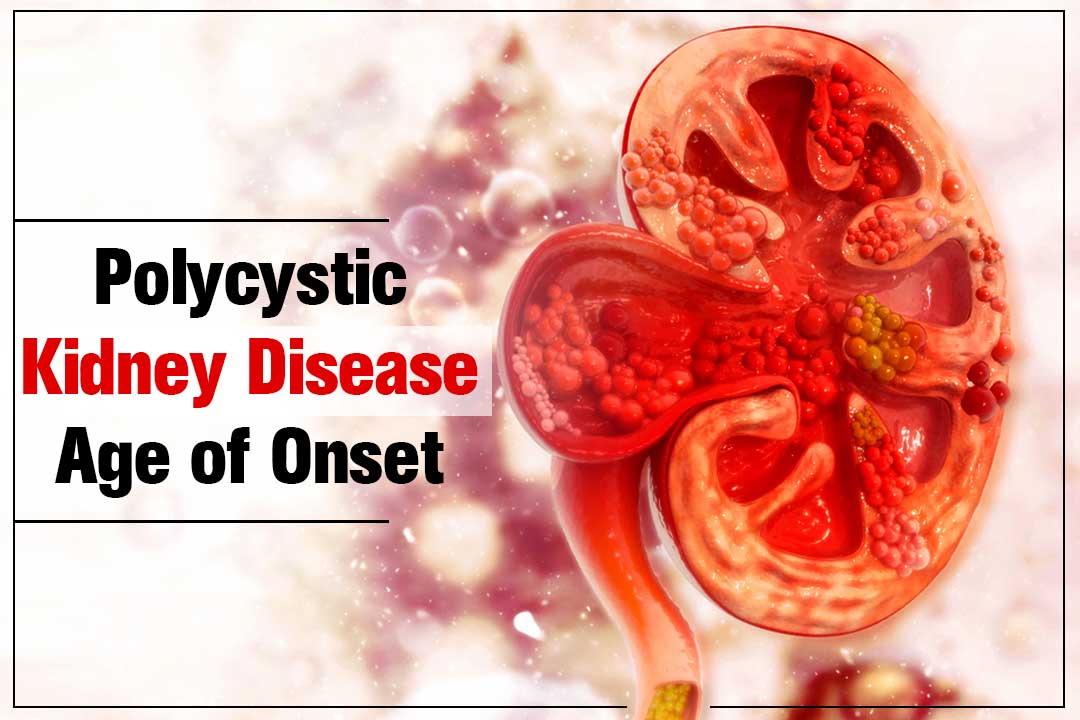What is polycystic kidney disease age of onset?

Polycystic kidney disease (PKD) is a genetic disease which commonly passes on kids from their parents. This cause many fluid-filled cysts in kidneys. PKD is a form of Chronic Kidney Disease (CKD) that decreases kidney function which may cause kidney failure. PKD is a genetic disorder it does not cause simple kidney cysts but, can change the shape of kidneys, like making them much larger as it passes to you from your parents so, it is with your from your childhood. The Polycystic kidney disease age of onset, the symptoms usually start between the ages of 30 and 40, but they can start quicker, even in childhood. PKD is passed from parent to child by passive inheritance that is why while providing the treatment to many patients in Karma Ayurveda Dr. Puneet Dhawan noticed common problems in parents and kids like High Blood Pressure, Cysts in the liver, and problems with blood vessels in brain and heart.
There are two types of PKD –
- Autosomal Dominant PKD (ADPKD). This disease you may usually diagnosed in adulthood as there is no specific polycystic kidney disease age of onset.
- Autosomal Recessive PKD (ARPKD). This disease usually diagnosed in the womb or shortly after the born of a baby.
What causes PKD?
- A gene mutation and defect cause PKD.
- In most common cases, a child got the gene mutation from a parent.
- But, in some of the patients who take ayurvedic treatment from Karma Ayurveda in them, the gene mutation developed on its own, without either parent carrying a copy of the mutated gene.
What are the symptoms of PKD?
High blood pressure and Kidney failure are the most common symptoms of ADPKD and PKD. But, in many cases, ADPKD does not display any symptoms until the kidneys cysts are a half inch or larger in size. The early symptoms of ARPKD in the womb are not like normal kidneys and it can be smaller in size as a fetus. The early symptoms of ARPKD are complications because polycystic kidney disease age of onset usually is 30 to 40 but, ARPKD does not develop symptoms until is later in childhood or even adulthood.
Can Ayurveda cure polycystic kidney disease?
In allopathic, there is currently no cure for autosomal dominant polycystic kidney disease (ADPKD), as they find it impossible to stop cysts developing in the kidneys but you can find polycystic Kidney Disease Treatment in Ayurveda. However, the patients of Karma Ayurveda find to get some potentially useful herbal medications that are useful to reduce the growth rate of cysts. Because there is not specific polycystic kidney disease age of onset so, in Ayurveda, the patients need to follow a healthy balanced diet to avoid polycystic kidney disease.
- The polycystic kidney disease is a genetic disorder, and you may get to know about this very late because you got it from your parents. But if you follow a healthy diet, you may cure it like eat 5 portions of fruit and vegetables a day to save your kidneys or your body from polycystic kidney disease.
- Don’t consume your meals on starchy food, such as potatoes, bread, rice or pasta. In Ayurveda, these kinds of foods are never good for everyone; either he is suffering from kidney disease or from any disease.
- A healthy diet and polycystic kidney disease Ayurvedic treatment can help you so; you can live a healthy live. Eat some dairy foods or dairy alternatives, like soya drinks to control your weight to control blood pressure and reduce the risk of polycystic kidney disease.
- Yes, there is no special diet for the patient of ADPKD but, he should consume protein like eat beans, pulses, fish, eggs, and meat.
If you have ADPKD, it is necessary for you to decrease your salt intake, because high amount of salt can enhance your blood pressure, which can damage your kidneys so, to get harmless treatment with no side effects for your kidney disease to consult to Dr. Punnet Dhawan, the ayurvedic doctor for every kind of kidney diseases.
